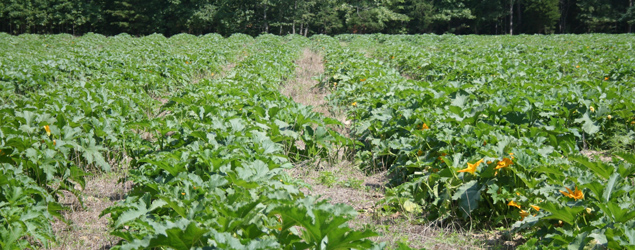Publications
Uttam Saha
http://extension.uga.edu/publications/detail.html?number=B1581
 George Boyhan
http://extension.uga.edu/publications/detail.html?number=B1539
George Boyhan
http://extension.uga.edu/publications/detail.html?number=B1539
 Taylor Singleton
http://extension.uga.edu/publications/detail.html?number=C1347
Taylor Singleton
http://extension.uga.edu/publications/detail.html?number=C1347
 Shimat Joseph
http://extension.uga.edu/publications/detail.html?number=C1130
Shimat Joseph
http://extension.uga.edu/publications/detail.html?number=C1130
 Shimat Joseph
http://extension.uga.edu/publications/detail.html?number=C1157
Shimat Joseph
http://extension.uga.edu/publications/detail.html?number=C1157
 Shimat Joseph
http://extension.uga.edu/publications/detail.html?number=C1159
Shimat Joseph
http://extension.uga.edu/publications/detail.html?number=C1159
 Jason Lessl
http://extension.uga.edu/publications/detail.html?number=C1075
Jason Lessl
http://extension.uga.edu/publications/detail.html?number=C1075
 Gary Hawkins
http://extension.uga.edu/publications/detail.html?number=C1331-01
Gary Hawkins
http://extension.uga.edu/publications/detail.html?number=C1331-01
 G. Buntin
http://extension.uga.edu/publications/detail.html?number=B1283
G. Buntin
http://extension.uga.edu/publications/detail.html?number=B1283
 Bikash Ghimire
http://extension.uga.edu/publications/detail.html?number=C1346
Bikash Ghimire
http://extension.uga.edu/publications/detail.html?number=C1346

See More Publications

Microfiltration Techniques and Devices
(B 1581)
This publication covers microfiltration, which is used for physical removal of contaminants from water. It describes how these processes work, their situation-specific usefulness/applications, maintenance needed for their proper functioning, and guidance for the consumers to select the appropriate filter.

An Introduction to Conservation Tillage for Vegetable Production
(B 1539)
Conservation tillage with agronomic crops (i.e., cotton, corn, soybeans, etc.) has been successful in Georgia production. Such production practices have several benefits, the most notable being the elimination of soil erosion. Other benefits include but aren't limited to increases in soil organic matter, maintaining a healthy rhizosphere (root-zone soil), reduction of riparian and waterway pollution, and water conservation.
Some examples of conservation tillage practices include no till, ridge till, and strip till. No–till production involves no tillage of field soils and leaves all of the previous crop residue on the soil surface. Ridge–till production involves building a ridge during cultivation, then scalping the ridge and sowing seed. The scalping process moves most of the previous–crop residue to the row middles, leaving a clean row for sowing. Strip–till production is when a narrow strip is tilled for each row that will be planted, leaving the row middles intact with the previous–crop residue. Strip–tillage may reduce yields if weeds in the untilled area are not killed, as these weeds will compete with the crop for water and nutrients. Although the planted row is free of previous crop residue, it may be advantageous to kill the cover crop to prevent it from competing for nutrients and water with the vegetable crop.

Locate Pesticide Use Limitation Areas (PULAs) Using the EPA’s Bulletins Live! Two Website
(C 1347)
Pesticide applicators should visit the Bulletins Live! Two website to determine if they are located within a pesticide-restricted or limited area, known as a pesticide use limitation area (PULA). These restrictions protect endangered and threatened species from adverse effects. This publication provides users a step-by-step guide on how to navigate this website and access the information needed for applications and recordkeeping.

Armyworms in Sod
(C 1130)
It is not unusual for fall armyworms to infest newly planted sod in a home landscape, especially during late summer to fall. Not all fall armyworm problems originate from sod farms but instead begin near the home landscape where sod is installed. This resource explains the biology and seasonality of fall armyworm in Georgia and discusses possible management strategies to mitigate infestation.

Two-Lined Spittlebug: Biology and Management in Turfgrass
(C 1157)
The two-lined spittlebug is an important insect pest of turfgrass in Georgia, with centipedegrass being the most susceptible to infestation. It also attacks some ornamental plants, including asters, hollies, and morning glories. This publication provides management options and other information on the two-lined spittlebug, including identification and biology, host plants, damage symptoms, and control strategies.

Rhodesgrass Mealybug: Biology and Management
(C 1159)
Rhodesgrass mealybugs are an invasive insect native to Asia that can infest more than 100 grass species including all warm-season grasses commonly used for pastures and turf in Georgia. This publication includes information about rhodesgrass mealybug identification and biology, its host plants, damage symptoms, and control strategies, including the use of parasitic wasps.

Urban Gardening: Assessing Soils for Contamination
(C 1075)
Urban gardeners and farmers may have concerns about potentially harmful contaminants in their soils. By determining the historical use of the land, one can test for soil contamination associated with prior use. This publication outlines appropriate testing procedures for soil contamination and recommends best gardening practices for working in urban soils.

The Bucket Method
(C 1331-01)
This publication describes the Bucket Method and how someone would use this method to measure the streamflow in a stream, creek, or river to be used in developing a Low Flow Plan required for a agricultural withdrawal permit. Part of the Stream Flow Measurements series.

Sorghum Insect Pests and Their Management
(B 1283)
Insect pests can be a major limiting factor in grain sorghum production in Georgia. Growers must be prepared to scout and prevent injury from insects in sorghum. However, a proper insect pest management program will minimize losses to insects and ensure appropriate insecticide use. This publication provides information on the biology and management of sorghum pests.

Fairy Ring in Turfgrass: Identification and Control in Georgia
(C 1346)
Fairy ring is an umbrella term for a disease that can be caused by more than 60 different species of basidiomycete fungi. It is particularly damaging on golf greens, but can affect all turf species in Georgia. Infection leads to localized dry spots and nutrient imbalances. No single strategy guarantees complete control, but integrating thatch reduction, water management, fertility optimization, and targeted fungicide applications can significantly mitigate disease impact.
